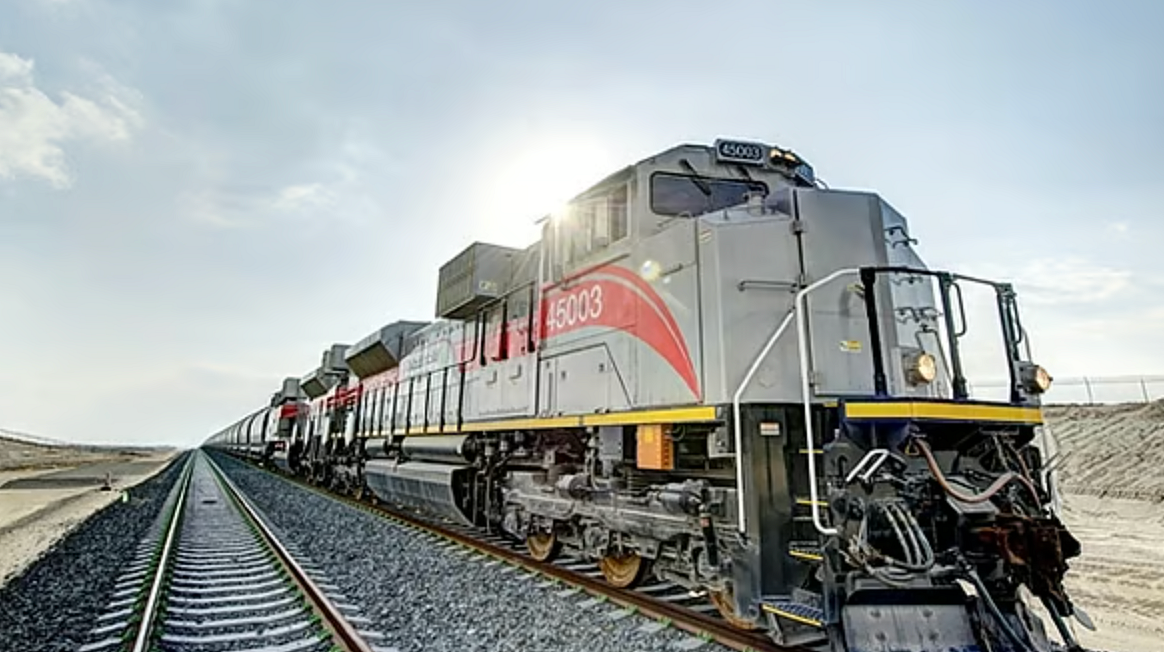
Abu Dhabi To Riyadh In Under 5 Hours: Etihad Rail CEO Outlines GCC Railway Vision
Travel between Abu Dhabi and Riyadh could soon take less than five hours by train "in a very comfortable and easy setting", once the highly anticipated GCC Railway becomes a reality.
Addressing the Global Rail 2025 event in Abu Dhabi, Shadi Malak, Chief Executive Officer of Etihad Rail, said the railway line will fundamentally change how people and goods move across the region.
Recommended For YouHe added that containers could be transported from Oman to Kuwait in less than 20 hours, cutting both costs and time.
Stay up to date with the latest news. Follow KT on WhatsApp Channels.
The Gulf Railway (also called GCC Railway) is a proposed regional rail network to link all six member states of the Gulf Cooperation Council (GCC): Saudi Arabia, UAE, Oman, Qatar, Kuwait, and Bahrain.
Its purpose is to facilitate passenger and freight movement across the Gulf, support trade, regional integration, and economic development.
The total planned length is about 2,177 km.
According to Malak, the project is no longer a question of“if” but“when.”“The rail is not just a UAE project, it is a GCC project that every citizen and resident of the region will benefit from. It is ambitious, but it is happening,” he said.
Stay up to date with the latest news. Follow KT on WhatsApp Channels.
Other panelists underscored the importance of regional cooperation and integration. Abdulrahman Salim Al Hatmi, Group CEO of Asyad, said the GCC must act collectively to unlock the full value of rail.“We need to work together because the challenges are becoming tougher. If we stay united, the GCC can provide infrastructure that supports trade, growth and resilience,” he said.
For DP World, rail connectivity is seen as critical to reducing logistics costs and creating more efficient supply chains. Abdulla Bin Damithan, CEO and Managing Director of DP World GCC, said GCC trade today stands at around $130 billion, 10 per cent of total regional trade.“There is huge potential. Studies show that logistics costs can be reduced by 30 per cent when using rail. This will allow manufacturers and traders to connect different free zones more efficiently,” he said.
As for Hussein Ali Safadi, CEO of Aqaba Development Corporation in Jordan, he noted that GCC rail can also be a bridge to wider markets.“Connectivity is the key. The Gulf can play a major role linking the Far East with Europe and North America,” he said, citing new partnerships between Etihad Rail and Jordan on freight corridors and industrial hubs.
Speakers agreed that the railway will reshape trade patterns, open new economic corridors, and provide a sustainable alternative to road transport. As Malak put it, the vision is clear:“It's a dream for every person in the GCC, and we are getting closer to achieving it.”

Legal Disclaimer:
MENAFN provides the
information “as is” without warranty of any kind. We do not accept
any responsibility or liability for the accuracy, content, images,
videos, licenses, completeness, legality, or reliability of the information
contained in this article. If you have any complaints or copyright
issues related to this article, kindly contact the provider above.


















Comments
No comment